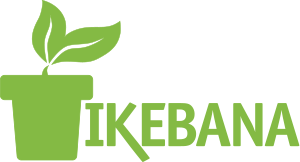The Ultimate Guide to Information Portals in the USA
What Are Information Portals?
Information portals act as centralized hubs that aggregate digital resources, offering users seamless access to data across various domains. These online platforms serve as gateways for individuals, businesses, and organizations seeking reliable information. Whether it’s government services, academic research, or industry insights, information portals streamline the process of data access while enhancing overall user experience.
The Importance of Information Portals in Modern Society
In today’s fast-paced world, information portals play a pivotal role in bridging the gap between data availability and accessibility. They empower users by consolidating vast amounts of information into easily navigable formats. From public health updates to economic indicators, these portals ensure that critical data reaches the right audience at the right time, fostering informed decision-making and improving societal efficiency.
Types of Information Portals Available in the USA
- Government portals provide citizens with access to official records, tax information, and public services.
- Educational portals offer students and researchers access to academic journals, course materials, and scholarly databases.
- Business portals enable companies to share market trends, industry reports, and collaborative tools for innovation.
Key Features to Look for in an Information Portal
A robust information portal should prioritize user experience by offering intuitive interfaces, personalized dashboards, and advanced search capabilities. Seamless data access is achieved through secure login systems, real-time updates, and integration with external digital resources. Additionally, mobile compatibility and multilingual support ensure inclusivity and convenience for diverse audiences.
How Information Portals Enhance User Experience
By consolidating fragmented data sources into unified online platforms, information portals reduce the time and effort required to find relevant information. Features like AI-driven recommendations and interactive visualizations further elevate the user experience, transforming complex data into actionable insights. This streamlined approach fosters productivity and engagement across sectors.
Challenges Faced by Information Portals
Despite their benefits, information portals face hurdles such as cybersecurity threats, data overload, and inconsistent quality of digital resources. Ensuring accurate information requires rigorous verification processes, while maintaining user trust demands transparency in data handling. For instance, some platforms struggle with balancing open-access policies and privacy concerns, a challenge that affects both users and administrators. red dog casino 100 no deposit bonus codes
The Role of Technology in Shaping Information Portals
Advancements in artificial intelligence, cloud computing, and blockchain are revolutionizing information portals. AI algorithms now predict user needs, while cloud infrastructure ensures scalability and reliability. Blockchain technology enhances data security, making it harder for malicious actors to tamper with critical information stored on these platforms.
Top Trends in Information Portal Development
Current trends emphasize personalization, real-time analytics, and voice-activated interfaces. Developers are integrating chatbots for instant customer support and leveraging big data to refine content delivery. Additionally, the rise of decentralized platforms is challenging traditional models, allowing users greater control over their digital resources.
Case Studies of Successful Information Portals
Portals like USA.gov and Google Scholar exemplify best practices in information management. USA.gov centralizes federal services, simplifying interactions between citizens and the government. Meanwhile, Google Scholar aggregates academic literature, enabling researchers to access peer-reviewed papers effortlessly. These examples highlight the transformative potential of well-designed information portals.
Security and Privacy Considerations for Users
As information portals handle sensitive data, robust security measures are non-negotiable. Encryption protocols, two-factor authentication, and regular audits help safeguard user information. Users must also adopt proactive habits, such as verifying data sources and avoiding unsecured networks, to protect their privacy on these online platforms.
Future Innovations in Information Portals
Emerging technologies like augmented reality (AR) and quantum computing may redefine how information portals function. AR could overlay contextual data onto physical environments, while quantum computing promises unprecedented speed in processing vast datasets. These innovations will further blur the lines between virtual and real-world data access.
How to Choose the Right Information Portal for Your Needs
Selecting an information portal involves evaluating factors like relevance, ease of use, and data accuracy. Prioritize platforms that align with your goals, whether you’re a student, professional, or policymaker. Assess the portal’s reputation, user reviews, and the range of digital resources it offers before committing to it.
Impact of Information Portals on Education and Business
In education, portals democratize knowledge by granting students access to global research and virtual classrooms. For businesses, they facilitate market analysis, competitor tracking, and collaboration with partners. By reducing information asymmetry, these platforms drive innovation and competitive advantage in both sectors.
Community Engagement Through Information Portals
Information portals foster community interaction by enabling shared access to local news, event listings, and civic initiatives. Social features like discussion forums and feedback mechanisms encourage participation, turning passive users into active contributors who shape the evolution of these online platforms.
Global Perspectives on Information Portals
While the USA leads in portal development, countries like Estonia and Singapore have pioneered digital governance models. Their success underscores the universal value of information portals in enhancing transparency and citizen engagement. As global standards evolve, cross-border collaboration will likely yield more inclusive and efficient solutions for data access worldwide.

